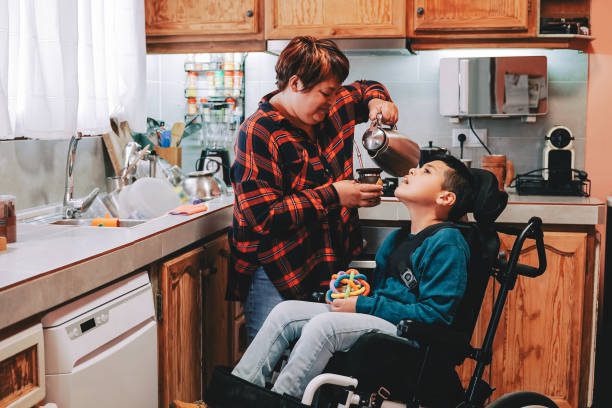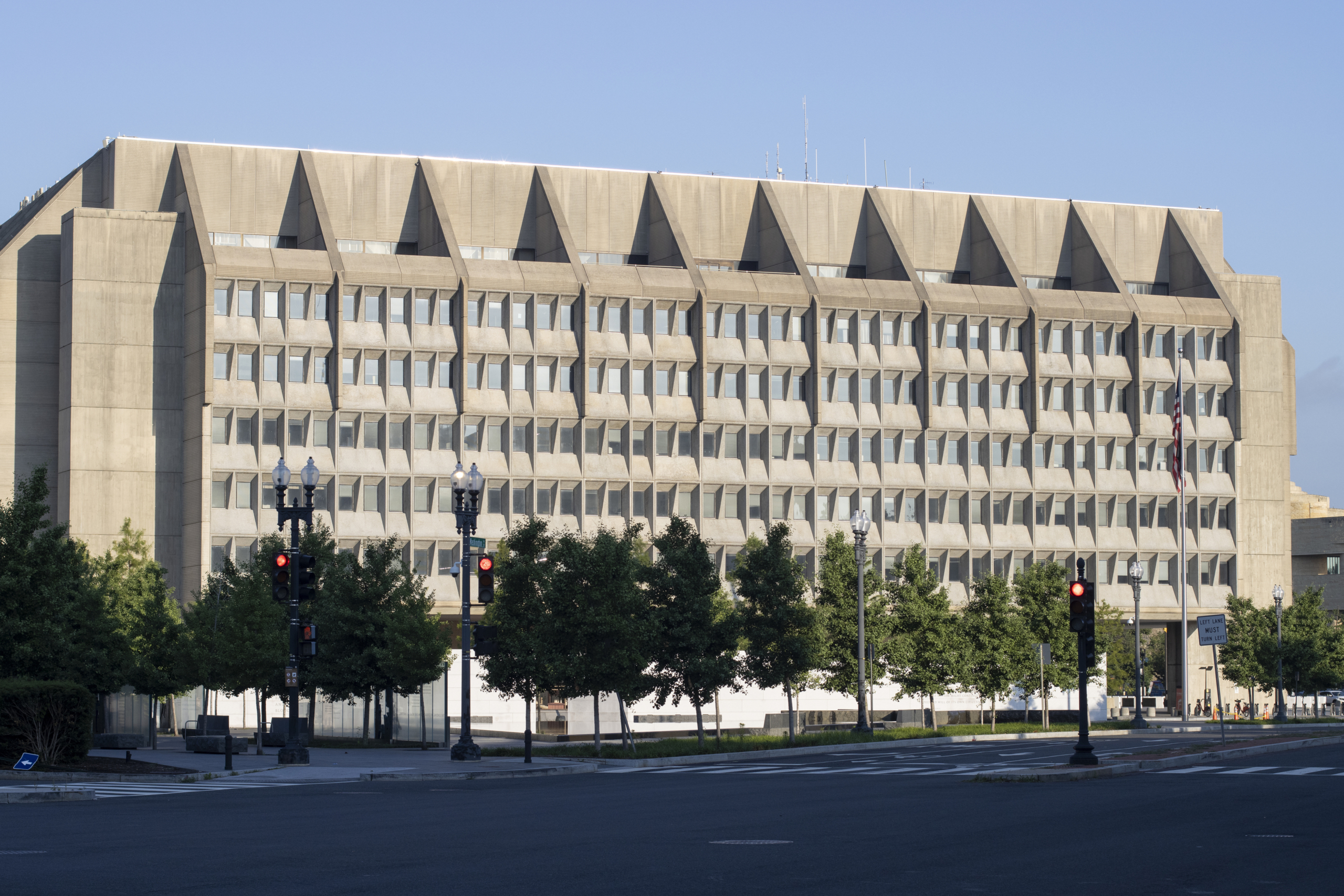The Litigation & Enforcement team at the National Health Law Program (NHeLP) fights for access to quality health care—coverage, services, and supports—for low-income and underserved people nationwide. With more than 55 years of experience, NHeLP is one of the most influential legal organizations in the history of the Medicaid program.
Along with the Medicaid Act, we use our expertise in the U.S. Constitution, Americans with Disabilities Act, Rehabilitation Act, Administrative Procedure Act, Affordable Care Act (including Section 1557), and other laws to ensure that economic status alone does not determine health outcomes. NHeLP’s Litigation & Enforcement team has broad experience in all phases of litigation, from case development through trial and appeal in federal and state courts.
Through litigation, amicus briefs, administrative complaints, and other legal strategies, our team of legal experts works to secure Medicaid coverage and services, advance non-discrimination and civil rights protections, ensure due process of law, and fight against health care cuts and barriers to care. Our partnerships with state and national advocates strengthen our expertise and connections with the communities we serve. We are committed to the heart of our work: creating meaningful, lasting change for limited-income people impacted by unjust policies and practices.
Our work remains urgently important as threats to access to health care and services continue to escalate. Some of our current litigation is focusing on improving transparency and fairness in automated decision making, like eligibility systems and assessment tools; helping children obtain necessary care in their communities, rather than institutions; and working to protect access to gender affirming care for transgender people. We’re prepared to bring these fights to the courts with our state advocacy partners so that people can get the health care they need.
To learn more or join us in this crucial work, reach out to [email protected] and become a partner in our pursuit of health justice.
Litigation
For over five decades, NHeLP has been instrumental in protecting the health care rights of low-income individuals through litigation and enforcement. With state and national partners, we take legal action when states, the federal government, or their contractors violate the health rights of low-income people. Below you will find a list of our litigation broken down by topic or click here to access all of our cases.
In addition to litigation, we educate advocates, policymakers, journalists, and the public about the impact of our work. Access our catalog of case explainers and other resources to learn more.
Health Law Partnerships
For decades, NHeLP has served as a resource and vital litigation partner to state-based advocates, legal aid organizations, and disability rights programs working to improve access to health care for low-income people. Over the last few years, we have developed a robust model for collaboration with Health Law Partnerships (HLP), which enables us to support our state partners with funding that empowers them to dedicate significant time and resources to effective state-specific advocacy, litigation, and enforcement efforts. The HLPs have been critical to nationwide advocacy efforts, such as stopping work requirements as a condition of Medicaid coverage and addressing harms to Medicaid beneficiaries, including unnecessary institutional placement of children with intensive behavioral health needs and medical complexity. We currently have HLPs with highly experienced state-based legal advocacy organizations in over 20 states.
Impact on the Legal Landscape
NHeLP’s litigation team appears as counsel in federal and state courts across the country, shaping the legal landscape of the Medicaid Act, as well as constitutional and statutory due process, disability rights, access to the courts, and other topics. Our work has extensive impact. NHeLP’s litigation team routinely provides extensive technical assistance in cases in which we are not counsel but have significant expertise. Some highlights from our history include:
- Medicaid rights of enrollees are enforceable. Litigation involving the enforceability of the Medicaid Act consistently cites NHeLP cases from across the country and NHeLP amicus briefs to confirm that rights to coverage or services are enforceable in court.
- Medicaid-enrolled children have broad rights to well-child check-ups and all services needed to treat their conditions, ensuring they receive the services needed to avoid preventable conditions. NHeLP has been involved in most of the litigation that has enforced children’s right to early and periodic screening and treatment services over the years. NHeLP’s work has improved the availability of a range of services, from oral health to in-home nursing care. NHeLP’s work with the NAACP-LDF and NRDC established that Medicaid-enrolled children must be screened for exposure to lead—an environmental hazard that has irreversible consequences on a child’s development—so that exposed children receive appropriate intervention and treatment.
- Community-based mental health services are provided to Medicaid-eligible children. NHeLP’s litigation on behalf of children with mental health conditions under the Medicaid Act, the ADA, and the Rehabilitation Act has expanded Medicaid coverage of intensive home and community-based services for children across the country. Over the past two decades, NHeLP has worked to ensure that children, including those in foster care, receive the necessary array of mental health services in the most integrated setting. These cases often transform patchwork, inaccessible systems that rely on children’s unnecessary institutionalization into coordinated care systems with key services for children with mental health needs.
- People with disabilities have the right to live in their communities, and that right includes avoiding the risk of living in institutions and other restrictive settings. NHeLP’s cases established the right to community living in several federal circuits and are frequently cited for courts’ recognition that a person may not be placed at risk of unnecessarily moving from their homes to institutional settings. NHeLP has a long history of successful litigation to prevent service cuts that jeopardize community placements and threaten unnecessary institutionalization.
- Due process in Medicaid adheres to all the principles set forth in Goldberg v. Kelly. Notice to enrollees and the opportunity for them to be heard cannot be shortchanged for the convenience of states, managed care programs, or providers. NHeLP’s legal theories and litigation have been foundational in forcing agency transparency and accountability, regardless of the basis for the agency’s decision and whether it was made using algorithms, matrices, or documents over which entities assert intellectual property rights.
- The state Medicaid agency is the responsible party. Despite states’ broad delegation of responsibilities to managed care plans, providers, and other contractors, NHeLP’s litigation holds states accountable for satisfying their obligations to Medicaid applicants and enrollees. For decades, NHeLP has been a leader in ensuring managed care does not erode beneficiary rights in Medicaid. We have challenged service cuts and due process failures in states with managed care and leveraged our longstanding familiarity with beneficiaries’ experiences to influence regulations, policies, contracting, and monitoring for Medicaid managed care.
- Eligibility restrictions beyond what the Medicaid Act permits, such as mandatory work requirements and premiums for very low-income populations, are not allowed. NHeLP’s Litigation & Enforcement team has led the development of the body of administrative law regarding the limits of government authority to use Medicaid demonstration projects under Section 1115 to enforce deep coverage cuts. For example, this litigation has stopped harmful work requirements in Arkansas, Kentucky, New Hampshire, and other states.
- Advocacy to ensure that access to reproductive health care is not illegally restricted. From filing to enforcing equal access to the full range of care services and providers, NHeLP has litigated and filed amicus briefs throughout its history to protect access to critical sexual and reproductive health services, including abortion.
- The Affordable Care Act continues to protect access to health care for millions, with protections against non-discrimination. Although many have fought to save the ACA, NHeLP has been an ardent, ongoing amicus party filing brief after brief to influence the courts. Justice Ginsberg cited NHeLP’s amicus brief in her concurring opinion in NFIB v. Sebelius, the Supreme Court case that upheld most of the provisions of the ACA. NHeLP’s enforcement work has significantly contributed to the shaping of Section 1557 of the ACA through successful administrative complaints regarding discriminatory drug tiering for HIV/AIDS treatment, amicus briefs, and intensive technical assistance. NHeLP’s work on equal access to HIV/AIDS treatment is part of a long tradition for the organization regarding fairness in access to prescription drugs, including pricing transparency.
- Language access must be provided in health care. From its early days, NHeLP’s enforcement efforts included work to ensure language access. NHeLP’s administrative complaints and other enforcement work have ensured that people with limited English proficiency can access the language services and care they need. NHeLP’s work includes a settlement that became the framework for the Department of Health & Human Services language access policy and later the federal government-wide language access policy.
- People with disabilities have equal access to Medicaid programs. Many of NHeLP’s cases fight not only for access to needed services but also for non-discriminatory access to services or coverage in general. Too often, states design and operate their programs in a manner that screens out eligible people with disabilities. Whether these result from flawed system design or administrative failures, NHeLP’s litigation has enforced the right to non-discriminatory care.
Amicus Briefs
NHeLP regularly submits amicus curiae, ‘friend of the court,’ briefs as part of its comprehensive case monitoring and response work. We submit amicus briefs in pivotal cases to increase awareness and understanding of the impact of Medicaid, disability, and other civil rights laws among judges and litigants. NHeLP also files as amici in cases addressing questions that are likely to impact access to court and due process of law issues. Over the last 30 years, NHeLP has filed amicus briefs with most federal courts of appeals and the Supreme Court when Medicaid beneficiaries’ ability to enforce their rights in court are being threatened. Our goal is to encourage judicial rulings that better reflect the complexities of Medicaid, other health care programs, and the lives of those impacted.
Litigation News
NHeLP issues press releases, case explainers, and other communications to provide information about our ongoing litigation and its impact on the lives of low-income and other underserved individuals and communities. Journalists looking to connect with our Litigation & Enforcement team should contact [email protected].
Meet the Litigation & Enforcement Team

Jane Perkins
Litigation Director | Senior Advisor to the Executive Director
Jane Perkins is the National Health Law Program Litigation Director and Senior Advisor to the Executive Director. As such,…

Amanda Avery
Senior Attorney
Amanda Avery is a Senior Attorney in the National Health Law Program’s North Carolina office, where she is helping…

Abigail Coursolle
Senior Attorney
Abigail (Abbi) Coursolle is a Senior Attorney in the National Health Law Program’s Los Angeles offices. Abbi provides technical…

Elizabeth Edwards
Senior Attorney
Elizabeth Edwards is a Senior Attorney in the National Health Law Program’s North Carolina offices. In addition to working…

M. Geron Gadd
Senior Attorney
M. Geron Gadd is a litigator whose practice focuses on enforcing the rights of people with disabilities to vital…

Sarah Grusin
Senior Attorney
Area(s) of Expertise: Due Process, Immigrant Access to Care, Algorithms and Computer Systems, 1115 Waivers, Court Access and Private…

Amo Makhubele
Office Coordinator & Paralegal - North Carolina
Amo Makhubele serves as the Office Coordinator & Paralegal - North Carolina. She manages a host of high-level paralegal…

Catherine McKee
Senior Attorney
Catherine McKee is a Senior Attorney in the National Health Law Program’s North Carolina office. She works to protect…

Miriam Delaney Heard
Senior Attorney
Miriam Delaney Heard is a Senior Attorney in the National Health Law Program’s North Carolina office. In addition to…

Kimberly Lewis
Managing Director, California Advocacy and Practice Area Managing Director
Kimberly Lewis is the Managing Director, California Advocacy and Practice Area Managing Director at the National Health Law Program’s…

Arielle Linsey
Senior Attorney
Arielle Linsey is a Senior Attorney in the National Health Law Program’s North Carolina office. She works with the…

Sarah Somers
Legal Director
Sarah Somers is the Legal Director at the National Health Law Program. In this role, Sarah leads NHeLP’s legal…



